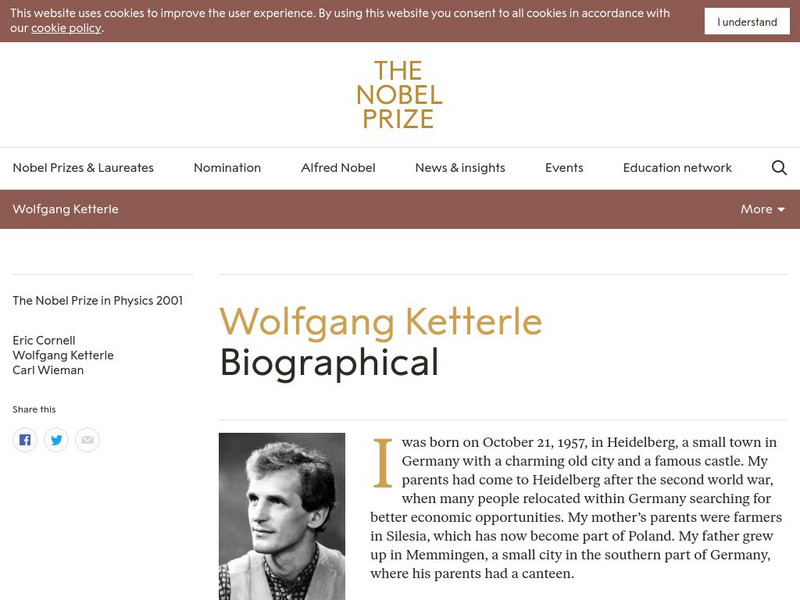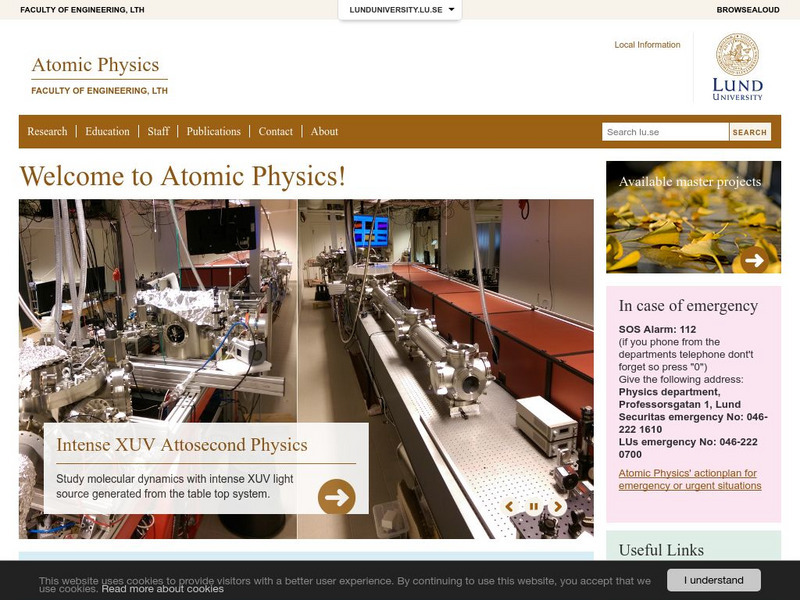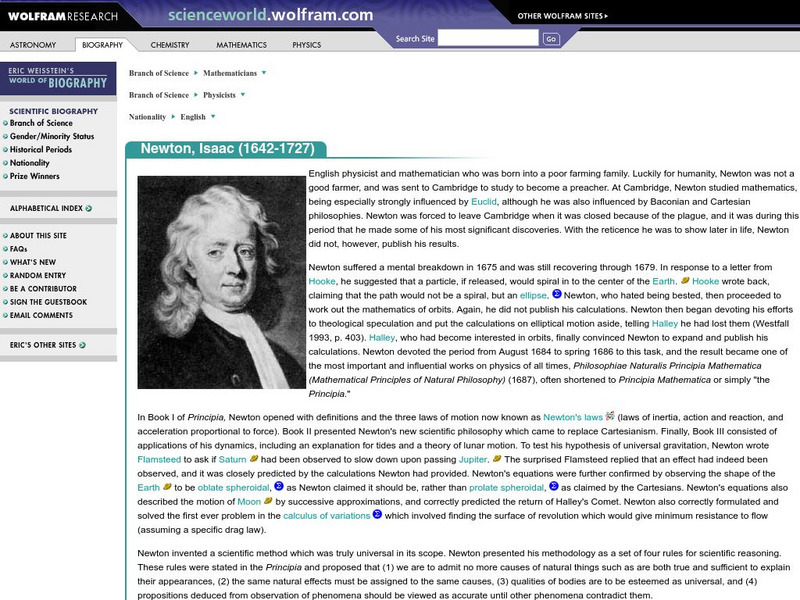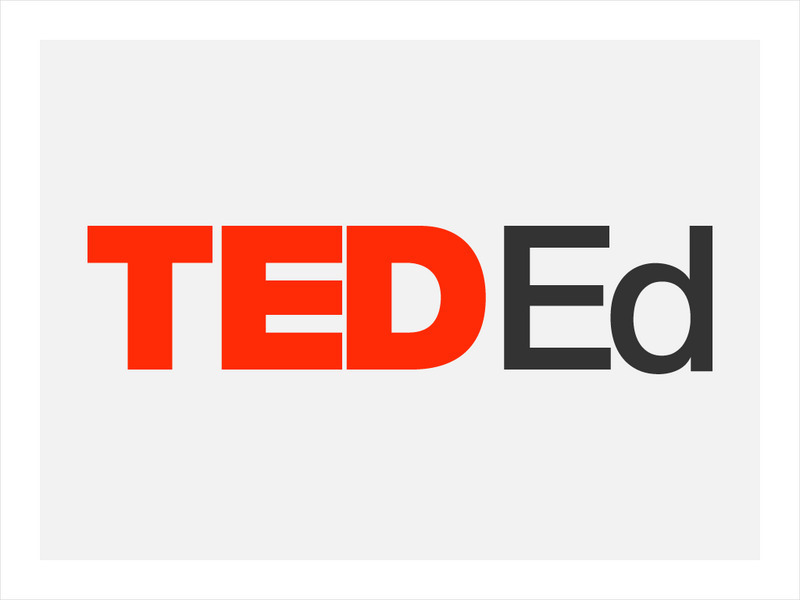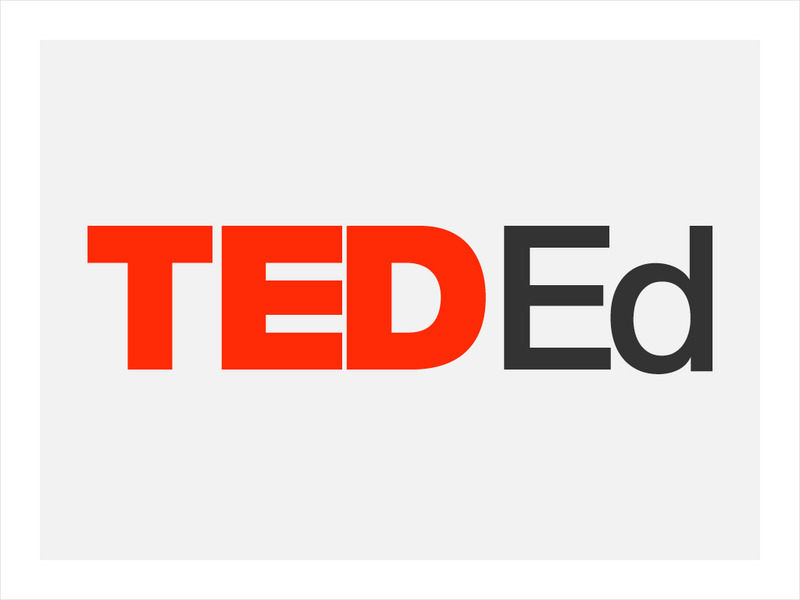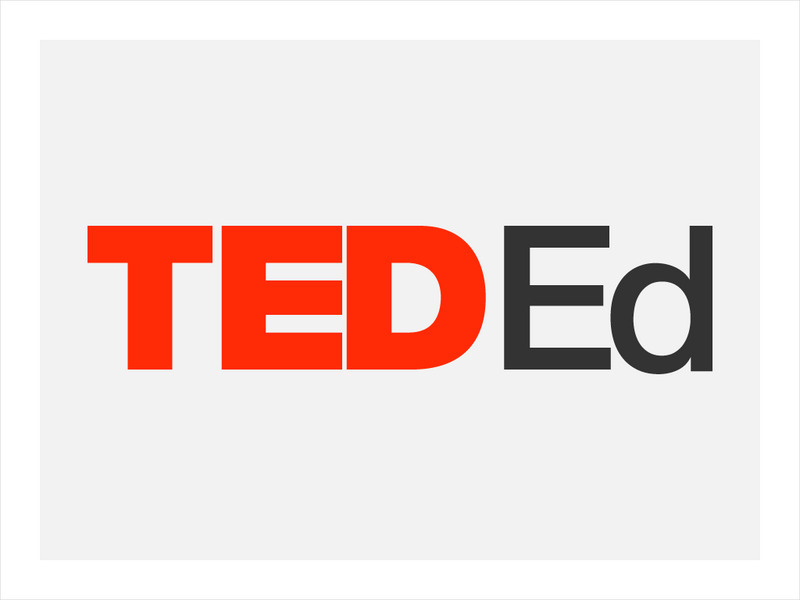Hi, what do you want to do?
Famous Scientists
Famous Scientists: Maria Sklodowska Curie
Read about the life and scientific work of Marie Curie, possibly the most famous female scientist in history. In addition to providing biographical information, this page includes details on her scientific discoveries and her influence...
Other
American Institute of Physics: Marie Curie and the Science of Radioactivity
Resource provides an in-depth exhibit featuring Marie Curie and her contribution to the science of radioactivity.
Other
American Scientist: Author Interview: Neil De Grasse Tyson
Astrophysicist Neil deGrasse Tyson has made "Popularizing science a personal passion." Tyson's latest book, Origins, is the starting point here for a discussion of dark matter, intelligent life in our solar system, the possibility of...
Microscopy UK
Microscopy Uk: Robert Hooke: Father of Modern Science and an Unsung Hero
An excellent biography, including all major periods of Robert Hooke's life, works, inventions, career, and even his battle with Newton.
Texas A&M University
The Cyclotron Institute
What is a cyclotron and what does it have to do with atomic physics. Go to this site and find the answers to all your questions.
Other
Institute for Atomic and Molecular Physics
The FOM Institute for Atomic and Molecular Physics (AMOLF) is one of the five national research institutes of the Foundation for Fundamental Research on Matter (FOM). The research at AMOLF is focused on selected areas of atomic,...
Nobel Media AB
The Nobel Prize: Eric A. Cornell Biographical
Contains an involved autobiography, focusing on Dr. Cornell's development as a scientist.
Nobel Media AB
The Nobel Prize: Wolfgang Ketterle Biographical
Nobel e-Museum provides a site that contains a detailed autobiography of Wolfgang Ketterle, 2001 nobel laureate in physics.
Other
Atomic Physic at Lund University
Lund University's on atomic physics. The site is quite comprehensive with information on projects, research, publications, reports, external sites, etc.
CommonLit
Common Lit: "Who Is Katherine Johnson?" by Nasa
CommonLit.org is a wonderful resource to use in a Language Arts classroom. Each story or article is accompanied by guided reading questions, assessment questions, and discussion questions. In addition, students can click on words to see...
PBS
Pbs: Physics Girl
Explore the physical world with this series that uses everyday experiments to demonstrate scientific ideas on this site.
TED Talks
Ted: Ted Ed: The Beginning of the Universe, for Beginners
How did the universe begin and how is it expanding? CERN physicist Tom Whyntie shows how cosmologists and particle physicists explore these questions by replicating the heat, energy, and activity of the first few seconds of our universe,...
Khan Academy
Khan Academy: Using the Right Hand Rule
Physicists use a hand mnemonic known as the right-hand rule to help remember the direction of magnetic forces. The right-hand rule is based on the underlying physics that relates magnetic fields and the forces that they exert on moving...
Wolfram Research
Wolfram Science World: Life of Sir Isaac Newton
This site from ScienceWorld provides an interesting biographical sketch of the English physicist and mathematician, Isaac Newton. The biography is a good size in length and very informative, with links provided throughout for additional...
Wolfram Research
Wolfram Science World: Maxwell, James
This ScienceWorld site describes the Scottish mathematician and physicist James Maxwell (1831-1879) who published physical and mathematical theories of the electromagnetic field.
Great Idea Finder
The Great Idea Finder: Blaise Pascal
Blaise Pascal (1623-1662), French philosopher, mathematician, and physicist, is considered one of the great minds in Western intellectual history. He also invented the first mechanical adding machine.
TED Talks
Ted: Ted Ed: Brian Greene on String Theory
Physicist Brian Greene explains superstring theory, the idea that minscule strands of energy vibrating in eleven dimensions create every particle and force in the universe. [19:11]
TED Talks
Ted: Ted Ed: Patricia Burchat Sheds Light on Dark Matter
Watch as physicist, Patricia Burchat, discusses two basic ingredients of our universe, dark matter and dark energy, and the effects they have in the expanding universe. [17:09]
BBC
Bbc News: Technology: Fifteen Years of the Web
BBC News presents a timeline that shows the beginning of the World Wide Web introduced by Tim Berners-Lee in August 1991 as a tool for physicists through August 2006 when there are almost one hundred million websites online and it is a...
Wikimedia
Wikipedia: J. Robert Oppenheimer
This biography from the encyclopedia Wikipedia of physicist Robert Oppenheimer discusses his education, his creation of the atomic bomb, and later, his opposition to the use of the bomb.
TED Talks
Ted: Ted Ed: Schrodinger's Cat: A Thought Experiment in Quantum Mechanics
Austrian physicist Erwin Schrodinger, one of the founders of quantum mechanics, posed this famous question: If you put a cat in a sealed box with a device that has a 50% chance of killing the cat in the next hour, what will be the state...
TED Talks
Ted: Ted Ed: Particles and Waves: The Central Mystery of Quantum Mechanics
One of the most amazing facts in physics is that everything in the universe, from light to electrons to atoms, behaves like both a particle and a wave at the same time. But how did physicists arrive at this mind-boggling conclusion? Chad...
TED Talks
Ted: Ted Ed: Making Sense of a Visible Quantum Object
Physicists are used to the idea that subatomic particles behave according to the bizarre rules of quantum mechanics, completely different to human-scale objects. In a breakthrough experiment, Aaron O'Connell has blurred that distinction...
TED Talks
Ted: Ted Ed: Einsteinium: Periodic Table of Videos
The team at Periodicvideos has created a TED-Ed Lesson for every element of the periodic table. Hear about einsteinium from a chemist who looks like the famous physicist. [1:52]









